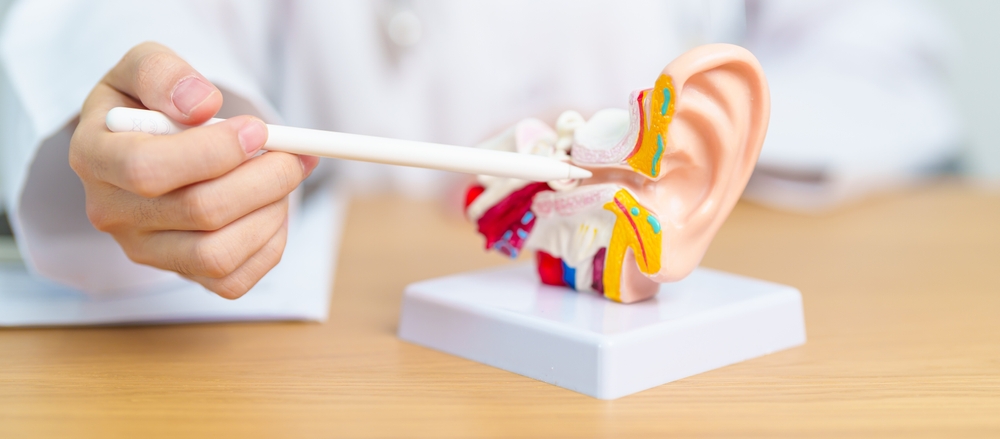 Ear infections are common, but they can have significant repercussions beyond discomfort. When recurrent or chronic, these conditions can directly impact hearing abilities, causing temporary or permanent hearing loss.
Ear infections are common, but they can have significant repercussions beyond discomfort. When recurrent or chronic, these conditions can directly impact hearing abilities, causing temporary or permanent hearing loss.
This post will help you understand the intricate link between ear infections and their effects on auditory health to recognize the risks, implement interventions, and protect against potential long-term consequences.
The possible health problems
Many conditions could appear as a result of constant ear infections. Even though this is not an exhaustive list, some of the most common conditions are as follows:
- Acute Otitis Media: this is a common type of ear infection in children. Fluid buildup behind the eardrum due to infection can cause temporary hearing loss. This fluid accumulation in the middle ear prevents the eardrum from vibrating properly, thus affecting sound transmission.
- Otitis Media with Effusion: it’s caused by fluid that remains in the middle ear for an extended period. This can lead to persistent mild to moderate hearing loss, as the accumulated fluid affects the eardrum movement and the ear’s tiny bones.
- Damage from Repeated Infections: scar tissue formation or injury to the eardrum or middle ear bones may result in recurring infections.
- Conductive Hearing Loss: infections can interfere with the transmission of sound waves to the inner ear. This hearing loss is usually due to problems in the outer or middle ear rather than the inner ear.
- Tinnitus: when your perception of sound is impacted in the absence of an external source by ringing, buzzing, hissing, or roaring. It’s usually a symptom of another condition, such as an ear infection, rather than a standalone disorder.
Risk Factors for Hearing Loss
If an ear infection afflicts you, you must be aware of the risks of not seeking proper medical advice and ignoring the symptoms. Any of these factors, or a combination, should sound the alarm in your head.
- Recurrent Infections: Multiple or chronic ear infections increase the risk of hearing loss, especially if left untreated.
- Age: Children are more susceptible due to the still-forming structure of their Eustachian tubes.
- Severity of Infections: Severe or prolonged infections are more likely to cause complications leading to hearing impairment.
- Delayed Treatment: Not seeking timely medical intervention can exacerbate the risk of hearing loss.
Prevention and Management
To lead a healthy life, it’s essential to keep in mind some of these tips on how to manage ear infections or, better yet, protect your body from them in the first place:
- Vaccination: Some ear infections can be prevented through vaccinations against common pathogens like pneumococcus and influenza.
- Prompt Treatment: Timely administering antibiotics or other prescribed medications can help clear infections and prevent complications.
- Lifestyle choices: Taking care of your body and mind can result in a much better chance of preventing these problems and successfully going through treatment.
- Regular Check-ups: Routine examinations by ENT specialists or audiologists can help monitor and manage any potential hearing issues resulting from ear infections.
- Treatment for Hearing Loss: Addressing hearing loss through hearing aids, cochlear implants, or other assistive devices may help reduce the perception of damage associated with hearing impairment.
Long-Term Impacts of Persistent Ear Aches
As mentioned above, one of the outcomes stemming from ear infections involves the potential impact on hearing abilities.
Beyond immediate hearing issues, chronic ear infections, especially in young children, can profoundly affect speech and language development.
Clear hearing during these formative years is crucial for acquiring language skills, and persistent hearing problems may lead to delays in speech and language milestones, potentially impacting future communication abilities. But it’s not only kids who suffer the psychological effects of hearing issues; it can also affect adults.
Persistent or recurrent ear infections can lead to structural damage in the ear, potentially increasing the susceptibility to further infections and chronic ear conditions. Prevention and intervention are essential in mitigating these long-term effects. Regular check-ups with healthcare professionals ensure quick detection and management of any lingering hearing-related issues arising from ear infections, optimizing long-term ear health.
The first step must come from you, though. If you feel like you lost some of your hearing, you might want to take a hearing test.
Learning About Hearing
Understanding the intricate relationship between ear infections and their impact on hearing health is crucial to determining your condition.
Recurrent or chronic ear infections can lead to temporary or persistent hearing impairments, like tinnitus, affecting development and communication abilities.
Timely medical intervention and accompaniment, plus regular check-ups, play a pivotal role in preventing long-term consequences such as structural damage, permanent hearing loss, and the psychological effects involved.
Proactive measures like recognizing risk factors and continuous monitoring are essential in preserving ear health and mitigating potential risks associated with these infections.
But there are still solutions for those with permanent hearing loss, like hearing aids. They ensure people can still enjoy life to the best of their abilities.
If you need hearing aids or hearing-related services, come to El Dorado Hearing in Tucson for a hearing aid fitting. We are independent hearing aid providers, so we carry multiple hearing aids in different types and styles. You are sure to find something which suits your budget and lifestyle.



Leave a Reply